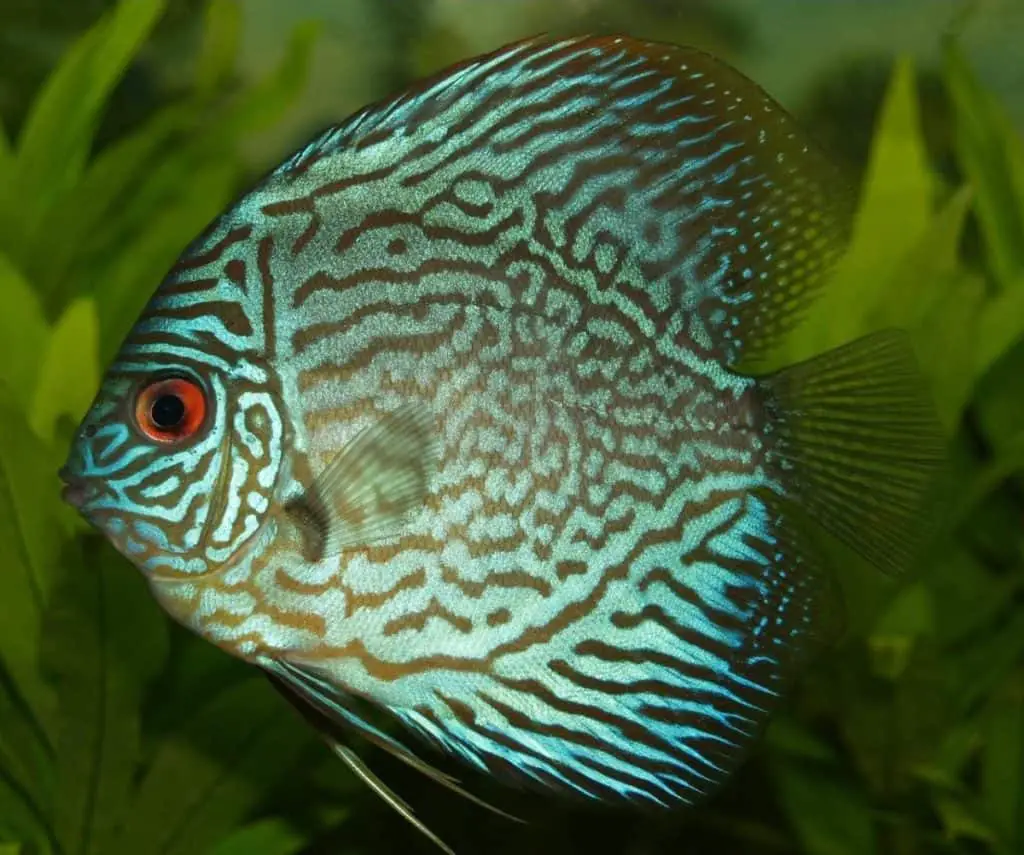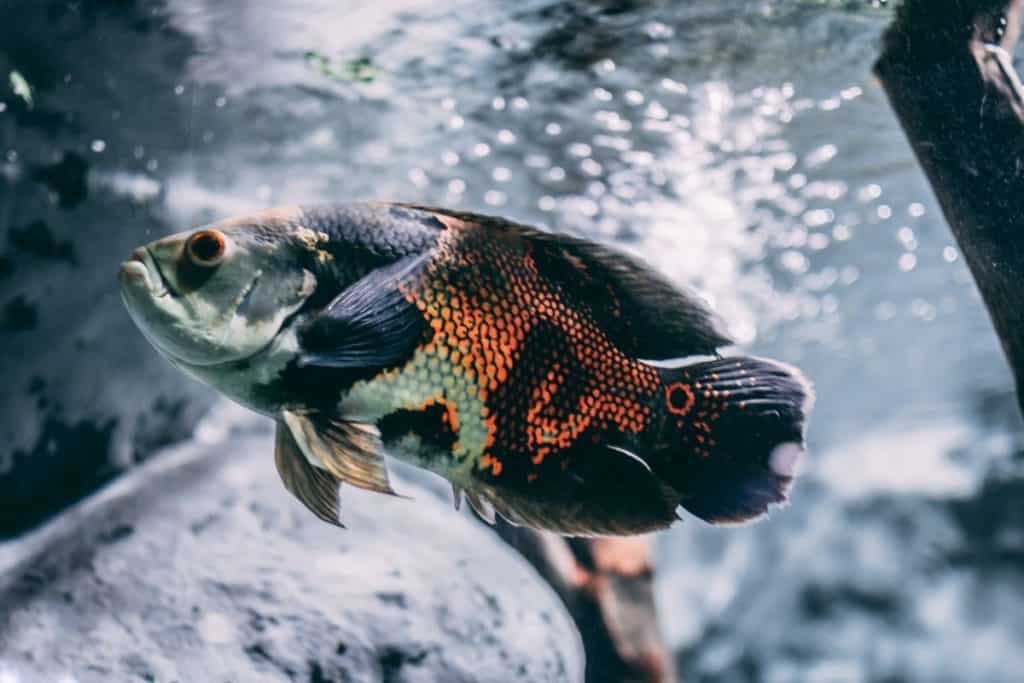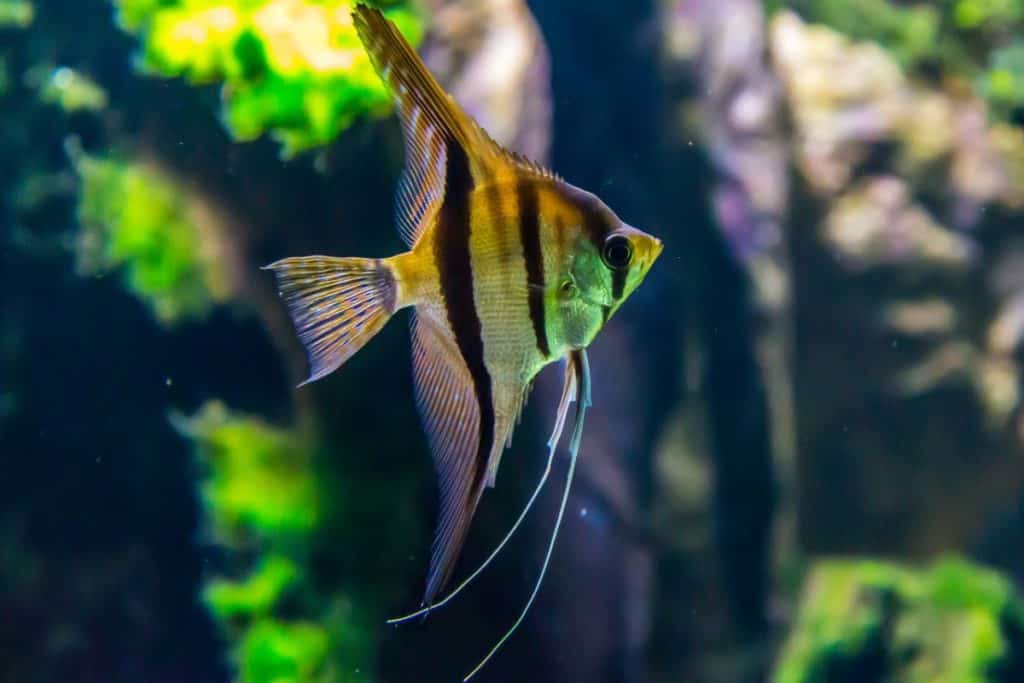
Have you always wanted to be aware of when a fish is hungry or not? In this article, you will get to know the answer to this question and also answers to a few more related questions. So, make sure you keep reading.
How do you know if a fish is hungry or not?
Fish behave as if they are looking for something when they are hungry. One of the behaviors of fish that indicate they are looking for something includes poking in the region of the substrate of the fish tank. If you observe your fish exhibiting such behaviors, they are very likely to be hungry, and then it is time for them to eat. You will also know when a fish is hungry depending on behaviors that you’re probably not used to.
For instance, if your fish are not used to scavenging but you find them scavenging, that is an indication that they are hungry. Additionally, if your fish are not used to visiting, viewing, and examining the top of the fish tank under normal circumstances, but you find out that they are regularly exhibiting this behavior, it is a sign that they are hungry.
In addition, fish get used to the routine of feeding that you have established for them. Let us say, for instance, that you are used to providing food to your fish once, twice, or even three times a day. The moment you fail to stick to the established feeding routine is the moment that your fish will start becoming hungry as they naturally would start searching for food themselves routinely. However, for fish that live in a natural habitat, it is a different case since they do not have a feeding routine. Instead, they feed depending on the availability of food.
Some of the signs that can be noticed when a fish is not hungry are when you, for example, notice a significant amount of food sitting at the aquarium base whilst the fish are not feeding on it, and another big sign is when the fish in question either grows too fast or is too fat.
What are all the signs of a fish being hungry?
The signs that indicate that a fish is hungry can be identified according to the behavior of the fish.
First, fish show that they are hungry when they behave in a manner that shows they are looking for something. You will know that your fish is looking for something if it continuously pokes in the region of the substrate.
Secondly, the fish behaves in response to the regular feeding time. Here, you will notice that the fish frequently visits the top of the fish tank when feeding time approaches according to the established routine.
Thirdly, fish exhibit aggressive behaviors when they are hungry. This change of behavior makes them restless, thus eating food quickly and greedily once fed.
Also, fish reduce in size and weight when they are hungry. However, since the size is an easily noticeable feature, you should regularly observe your fish for any size-reduction.
Lastly, when fish are hungry for a relatively long time, they become inactive due to depleting energy reserves in their bodies.
What are the signs of fish that are starving?
By observation, you will realize when fish are starving through a change in behavior like looking for food in the region of the aquarium’s underlayer. They try to look for food by poking the substrate.
Also, some behavioral change in the way the fish are frequently visiting the top surface of the water in the fish tank signifies that the fish are starving.
Additionally, the fish will also exhibit behavioral changes and start being aggressive by eating hastily and greedily when you feed them.
Starvation means that the fish have gone for some days, say a week, without eating anything. Therefore, their bodies will begin experiencing emaciation, and finally, there will be an observable weight and size reduction.
Due to the depletion of fatty energy reserves, fish become inactive through behaviors such as exhaustion and drowsiness.

Are fish always hungry?
Fish will continuously feed if you constantly provide food for them. This behavior of wanting to eat all the time is expected for fish due to their high metabolic activities. The increased metabolic activities are due to their constant state of swimming. Therefore, you are entirely responsible for regulating the amount of food that your fish eat every day. Additionally, you may observe that most of the time your fish have scavenging behavior in the fish tank. This behavior, however, does not mean that the fish are hungry. Remember, fish are natural scavengers.
Check out the video below if you want to be a bit more informed about why fish always act hungry and also on how often you should generally feed your fish.
What are the signs of underfed fish?
Small-sized fish can sometimes show signs of being underfed by biting on things in the fish tank. Additionally, your fish might also be small-sized, but if the size of the fish reduces to a smaller size than the original standard size, it means that the fish is underfed or it could even be that the fish in question is sick. You might also observe that the fish in question has a hollow and inconspicuous stomach which is another sign that the fish is underfed.
If you can’t get enough of learning about fish then I encourage you to check out the “Fish Category Page” which consists of various articles that give answers to fish-related questions.
How often do fish get hungry?
Fish always appear to be in a hurry to eat. However, that should not trick you into giving them excess food. You should have a fixed schedule which you should follow to know when to feed your fish. Typically, fish should be fed twice or three times per day with some small quantities of flakes. It is important to note that it should only take approximately two minutes for the fish to consume all the food in the aquarium. Note that putting excess food in the fish tank is not safe since it may lead to water clouding, which can ultimately be detrimental to the health of the fish inside the tank.
Do fish need to be fed every day?
It is enough to feed your fish twice or three times a day. To ensure that the fish are not hungry between feeding intervals, you should provide fish with a small number of flakes that adequately sustain each fish before the next feeding. It should take each fish approximately less than two minutes to consume all the flakes they receive.
Note that you should avoid causing adverse health effects to your fish through water clouding which happens when you put excess food in the fish tank. Additionally, it’s a best practice to keep an eye on the sizes of all the fish that are in your fish tank, so that you can adequately decide which fish needs to be fed more often and which one less. Larger fish should generally have longer feeding intervals than smaller fish.
Check out the video below which explains how you can know if you’re feeding your fish enough or not.
Will my fish be OK without food for a week?
Fish that live in an aquarium that contains freshwater can stay without being fed for three to seven days. However, fish that can sustain themselves without food for one week are mostly adult fish that have been in good health throughout. If your fish have been in good health for most of their lives and are now adults, not only can they go without food for one week, but they can also go for two weeks without eating.
Adult fish with a healthy history have fat reserves that provide the fish with the energy required during the period that the fish won’t get any food. On the other hand, it is difficult for younger fish to go without food for seven days or longer. Younger fish need to be fed at least once per day since they are still growing and thus have limited to no fat deposits under their skin.
How long can small fish go without food?
Fish manage to go for several days without being fed due to the fat deposits under their skin that serve the purposes of providing the fish with energy. However, small and young fish are still at their early developmental stages, thus lacking these essential fat reserves. Therefore, you should not let your fish go for several days, like seven days, without food. Furthermore, it is necessary to feed your small and younger fish at least daily or at least once every two days if circumstances force you to do so.

How often should aquarium fish be fed?
Did you know that most fish take up to twenty-four hours to completely digest the food that they have just eaten? Yes, within a period of between sixteen to twenty-four hours, the fish in your fish tank has already wholly digested the food they ate. Therefore, this digestive period explains why it is adequate to feed your fish one or two times every 24 hours.
Individuals who have fish as pets and as part of their hobbies point out that holding fasting days (one to two days) without feeding your fish is essential for them since it helps them get rid of the unwanted materials in their digestive systems. Also, the frequency of feeding your aquarium fish depends on the size of the fish and how active they are. So, larger and inactive fish can last several days without food. However, it would help if you fed smaller and vigorous fish once every day or at least once every two days.
How much food should you feed your hungry fish?
Most of the time, fish are hungry after approximately sixteen to twenty-four hours after feeding. The reason for this is that a single feeding takes a fish 16 to 24 hours to fully digest. Therefore your fish will be fine if you give them food once every 24 hours. However, according to the varying preferences of fish owners, feeding fish up to two times within 24 hours is also suitable for them.
But also, the quantity of food given to fish determines the feeding interval. For instance, if you have small and young fish, you have to provide them with small amounts of food more frequently. In this case, feeding intervals of about three times within 24 hours is sufficient.
Conclusion
Behavioral changes are the key to determine whether your fish are hungry or not. When fish suddenly change their behavior through scavenging, frequently visiting the top of the fish tank, and aggressiveness when eating, it shows that they are hungry. How often you should feed your fish depends on their size and on how active they are.

